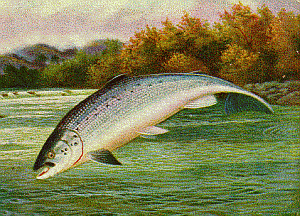A consortium of universities and companies in the U.K., led by University of Liverpool, is developing a plant-based substitute for fishmeal as feed for farm-raised fish. Fishmeal is made from fishery by-products or various species caught for fishmeal processing, which is then fed to farm-raised fish as a protein source.
In addition to Liverpool, the collaboration includes University of the Highlands and Islands in Scotland, and University of Nottingham’s commercialization subsidiary known as Eminate, as well as fish feed manufacturer Skretting and Anglesey Aquaculture, a producer of farm-raised fish. The project aims to devise a plant-based substitute for fishmeal to help sustain fish stocks at a time when more than 90 percent of EU waters are at risk from overfishing.
The basic approach taken so far by the industry is to replace fishmeal with plant proteins, such as soy. Many plants, however, contain anti-nutrients that prevent digestive enzymes in fish from working, which results in poor digestion and failure to absorb important nutrients, and causes toxins to build up in fish.
Iain Young, from the Liverpool’s Institute of Integrative Biology says, “Studies have shown that fish, such as salmon and sea bass, eat less of the plant protein product and don’t grow as fast.” Young adds, “Their flesh does not receive the necessary levels of Omega-3 fatty acids, which are a key component of human nutrition.”
A potential solution involves preheating the plant protein to break down the toxins and anti-nutrients, but this is a costly method to implement. An alternative approach taken by the consortium uses fermentation techniques that have proved cost-effective in agriculture and other industries. Fermenting plant proteins can make use of beneficial bacteria to predigest the plant material and make nutrients more available for absorption by the fish.
Fermentation, says Young, “will help resolve current technical limitations of the product and address the concerns about overfishing and food shortage in the years to come.”
Read more:
* * *


 RSS - Posts
RSS - Posts
You must be logged in to post a comment.